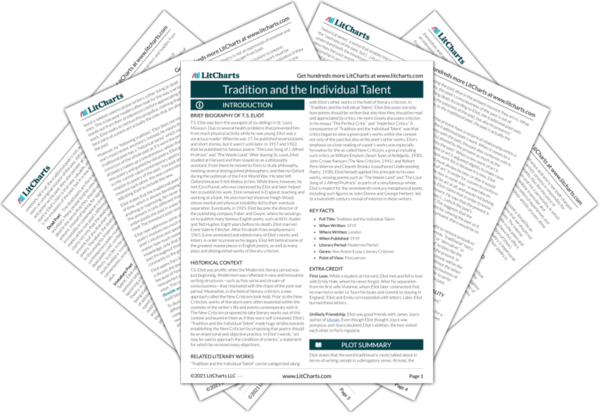Depersonalization Quotes in Tradition and the Individual Talent
What happens is a continual surrender of himself as he is at the moment to something which is more valuable. The progress of an artist is a continual self-sacrifice, a continual extinction of personality.

Unlock explanations and citation info for this and every other Tradition and the Individual Talent quote.
Plus so much more...
Get LitCharts A+The mind of the mature poet differs from that of the immature one not precisely in any valuation of “personality,” not being necessarily more interesting, or having “more to say,” but rather by being a more finely perfected medium in which special, or very varied, feelings are at liberty to enter into new combinations.
The more perfect the artist, the more completely separate in him will be the man who suffers and the man who creates; the more perfectly will the mind digest and transmute the passions which are its material.
[The traditional poet’s] emotions may be simple, or crude, or flat. The emotion in his poetry will be a very complex thing, but not with the complexity of the emotions of people who have very complex or unusual emotions in life.
Poetry is not a turning loose of emotion, but an escape from emotion; it is not the expression of personality, but an escape from personality. But of course, only those who have personality and emotions know what it means to want to escape from these things.












